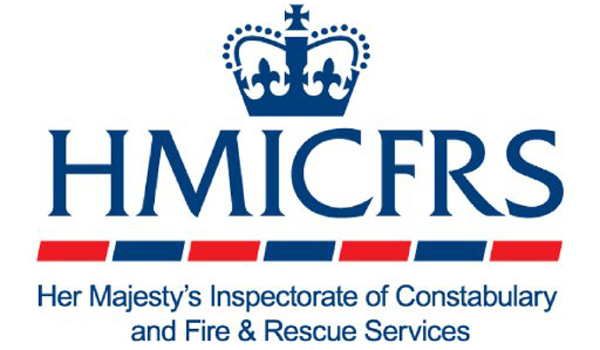HMICFRS rejects PCCs’ criticism of force management statements
Her Majesty’s Inspectorate of Constabulary and Fire and Rescue Services (HMICFRS) has defended its new accountability tool after a critical report sparked an unprecedented attack by police leadership.
Senior leaders were accused of putting the public at risk by failing to properly plan for the future in the damning State of Policing report published by HMCIFRS Sir Tom Winsor on Tuesday (June 12).
His comments were condemned by Merseyside police and crime commissioner (PCC) Jane Kennedy, who accused Sir Thomas of stepping “beyond the pale of acceptability” and described him as “chief government bean counter”.
In particular, Ms Kennedy criticised the HMCICFRS-backed force management statements (FMS) for allegedly requiring Merseyside Police to spend “thousands of hours” filling them in.
HMICFRS has now insisted its FMSs will provide forces with sound and reliable information that will help hold policing to account.
A spokesperson said Merseyside Police “has not spent thousands of hours compiling its force management statement”.
They added: “The FMS will give the inspectorate and the public the highest-quality information about demand, capability and resources, and so enable people to make informed judgments about what they want the police to do.
“We welcome the fact that many of the people who responded to our consultation are willing and eager to work with us to develop the FMS.
“The chief inspector of constabulary believes that public debate on such matters should be conducted in professional and courteous terms.”
The State of Policing report warned that the hard work of many frontline officers is masking shortcomings of senior leaders who are not planning or using resources effectively.
It also accused many forces of possessing unnecessary levels of bureaucracy and requiring officers to work with antiquated systems that are hindering their ability to help the public.
Sir Thomas proposed the FMS initiative, which he is introducing to policing following his experience as a rail regulator, will provide forces with the information they need to better plan for the future.
FMSs are self-assessments that officers at chief constable rank are required to prepare and pass to HMICFRS each year.
They are intended to provide evidence of the demand each force expects to face in the next four years, how forces will adapt to meet it and how they will improve their efficiency.
Forces were asked to submit the first FMSs in May this year.
Ms Kennedy claimed her force’s planning and analysis staff are working effectively and “very significant” resources are committed to ensuring that public safety is protected.
She also stated that planning capability “would be in an even better position if Sir Thomas Winsor had not insisted that thousands of hours of their time during this last six months be switched from demand analysis to the preparation of responses to Sir Thomas Winsor, including his ridiculous force management statement, with no discernible benefit to the public of Merseyside or the police who protect and serve them”.
“This is a terrible burden to place on a force that carries very high risks and increased numbers of crime, especially violent crime. This burden of red tape has detracted from the force’s ability to protect the public; all to satisfy Sir Thomas Winsor, Chief Government Bean Counter and his ultimate folly, the requirement to produce a force management statement,” she said.
Wiltshire’s PCC, Angus Macpherson, also weighed in on FMSs, describing them as a “bureaucratic burden that our already stretched forces could do without”.
He added: “For the report to suggest that all chief constables and police leaders are failing to plan properly and thereby compromising public safety is insulting and wrong.”
And David Jamieson, PCC for the West Midlands, said: “The Chief Inspector’s comments show, again, a partial and flawed understanding of policing.
“Unfortunately, his approach is not without consequence. His imposition of force management statements lands a large, uncosted administrative burden on policing with little or no gain for preventing crime or public confidence.”


